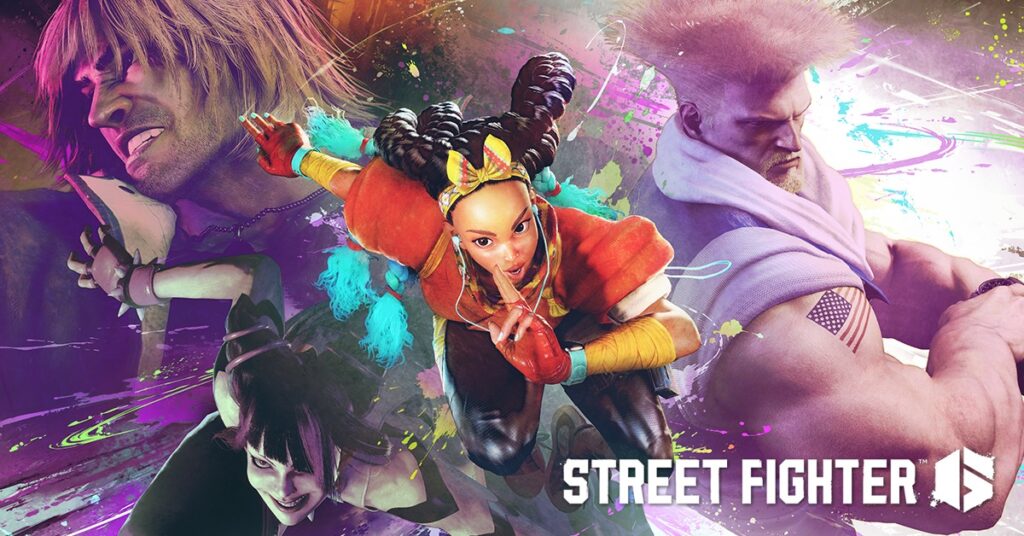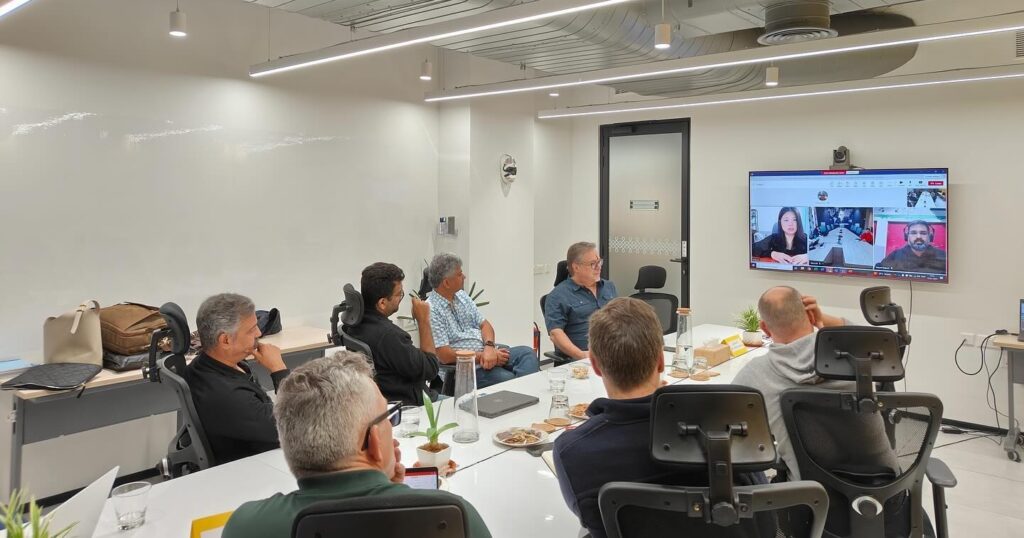Indian gaming studios have significantly influenced the global gaming industry. Much like their counterparts in animation and VFX, service studios play a crucial role in India’s AVGC sector, recognised for their contribution alongside big studios, publishers, and indie developers.
The expanding global gaming market has fueled a rising demand for game development and engineering services, elevating the importance of service lines in the industry. Lakshya Digital – part of Keywords Studio – a major player in this space, stands out by providing game art and animation services to renowned international game studios such as Capcom, Square Enix, Luminous Productions, and more. Their portfolio includes contributions to popular titles like Street Fighter 6, Forza Motorsport, Forspoken, and others.
In an interview with AnimationXpress, Lakshya Digital CEO Manvendra Shukul, reflects on the gaming sector’s performance in 2023. The discussion spans key aspects such as the outsourcing segment, advancements in game technology, the integration of AI, and strategies for the Indian gaming industry to address challenges anticipated in 2024.
- What were the notable trends in the gaming industry that Indian studios capitalised on for service work this year?
In 2023, Indian gaming studios strategically navigated and capitalised on key industry trends, contributing to the global gaming sector’s growth.
- India surpassed China to become the leading consumer of mobile games, securing an impressive 17 per cent share of global downloads.
- 5G networks not only expedited game downloads but also fostered the growth of mobile-based cloud gaming services and augmented reality (AR) games. With 5G’s capabilities supporting one million devices in a single square kilometre, there was a surge in mobile gaming participation, especially in multiplayer formats. This shift is anticipated to propel the growth of mobile esports, presenting exciting opportunities for Indian studios in this landscape.
- Indian studios leveraged their expertise in crafting immersive gaming experiences by integrating AR and VR technologies.
- As an outsourcing hub in the gaming industry, India solidified its reputation for delivering cost-effective and high-quality game development services. Global gaming companies consistently turn to Indian studios, entrusting them with various aspects of game development, from artistry to testing processes.
- Indian indie developers, known for their creativity and innovation, created unique games that resonated [with audiences] and gained recognition across diverse gaming platforms.
This intersection of ingenuity and strategic adaptation underscores the dynamic role that Indian studios play in shaping the contemporary gaming landscape.
- Can you highlight the significant partnerships or collaborations between your studio and international developers in 2023?
Here are some notable collaborations our studio established in 2023:
- Forspoken with Luminous Productions
- Redfall with Arkane Austin
- Street Fighter 6 with Capcom
- AEW Fight Forever with Yuke’s
- Final Fantasy XVI with Square Enix
- Immortals of Aveum with Ascendant Studios
- Baldur’s Gate 3 with Larian Studios
- Armored Core 6 with FromSoftware
- Starfield with Bethesda Game Studios
- The Lords of the Fallen with HEXWORKS
- Forza Motorsport with Turn 10 Studios
- Alan Wake II with Remedy Entertainment
Remarkably, Street Fighter 6, Final Fantasy XVI, Baldur’s Gate 3, Armored Core 6, Forza Motorsport and Alan Wake II have all received accolades at the Game Awards. It’s a proud moment for our studio to be part of these acclaimed titles, and we extend congratulations to all the developers for their achievements.
- What were some standout success stories or achievements for your studio in terms of delivering outsourced work to global gaming companies?
Throughout the year, our teams established personalised outsourcing pipelines and implemented an avatar system. The commitment and innovation showcased by our teams in various projects and collaborations have set us apart in the industry.
Our offshore teams have grown in both team size and skillset diversity, respectively enabling us to approach projects with increased efficiency and ensuring a comprehensive expertise pool. As a result, we offer more refined and tailored solutions to our clients.
- In terms of game technology, have you upgraded your pipeline or workflows in any way?
We consistently enhance our pipeline and workflows, incorporating the latest Digital Content Creation (DCC) tools such as 3ds Max, Maya, Blender, Substance Painter, and Designer. Additionally, we stay at the forefront of game engine technology, adopting Unreal Engine 5.
Our technical artists and developers research and develop on the latest technologies in game art. This involves creating custom tools and plugins to streamline processes, making them more efficient, less laborious, and automated. Our current game technologies in use include Marvelous Designer for realistic clothing, photogrammetry/3D scanned data, procedural modelling with Houdini, Blender, and Unreal PCG graphs, as well as nanite mesh for in-game models.
We also employ procedural texturing using Substance Designer and UE5 and have in-house developed numerous automated rigging and animation tools, as well as QC tools.
- Can you shed some light on how AI was used in gaming this year, and how do you see its future in 2024?
In 2023, AI had a transformative impact on gaming:
- AI algorithms for dynamic content generation create diverse and unpredictable gaming environments, enriching player immersion with unique challenges.
- Sophisticated AI-driven non-player characters (NPCs) and enemies adapted intelligently to player strategies and exhibited realistic behaviour.
The 2024 trajectory of AI indicates advanced graphics, physics simulations, and natural language processing for in-game interactions, promising heightened realism. AI-driven NPCs are expected to evolve with advanced decision-making capabilities that enhance storytelling and provide engaging narratives.
Procedural content generation powered by AI will likely become more prevalent, enabling the creation of larger and more diverse gaming worlds without compromising quality. AI’s role in the design phase is expected to increase, assisting developers in creating game mechanics, levels and scenarios, and in streamlining development processes.
AI algorithms are anticipated to better understand player preferences, allowing for real-time adjustments in games, including personalised challenges, in-game events, and adaptive difficulty levels tailored to individual player behaviours.
As technology advances, AI will shape the gaming landscape by offering new dimensions to player experiences and setting benchmarks for the industry in 2024.
- How have you maintained high-quality standards and displayed creativity in the projects you have worked on compared to your global counterparts?
At Lakshya, we maintain high quality and nurture creativity in our projects. Our Dual Shore Model which has over 800 artists globally, integrates with our clients, essentially becoming an extension of their creative leadership.
Our global teams in the USA and EU collaborate with clients in real-time, providing access to a diverse talent pool and adhering to two-stage quality control. Our internal tracking processes established KPIs for transparency, combined with our ability to handle end-to-end production allows clients to focus on crucial tasks. This approach guarantees project success.
- In the outsourcing domain, what are the opportunities and challenges for Indian gaming studios in 2024?
In 2024, Indian gaming studios are poised to leverage these opportunities in the outsourcing domain:
- Cost-effective and high-quality solutions, expertise in AR, VR and AI positions Indian studios as valuable partners for international counterparts.
- Specialisation in niche areas like mobile gaming, VR experiences, and specific game genres enables tailored services to meet client needs.
- India’s rich cultural landscape enhances capabilities to incorporate cultural nuances into game development, which is particularly beneficial for projects requiring localisation.
- Educational initiatives in game development contribute to a skilled workforce.
However, amidst these opportunities, Indian gaming studios face challenges in the outsourcing landscape:
- Talent retention and attrition are significant concerns with the need to retain skilled professionals amid global competition.
- Potential rises in labour costs could impact the traditional cost advantage Indian studios have offered.
- Continuous upskilling is necessary to stay competitive, posing a challenge for studios to keep up with technological advancements.
- Emerging outsourcing hubs heighten the competition, urging Indian studios to differentiate through specialisation, innovation, and high-quality standards.
- Infrastructure challenges, including inconsistent power supply and limited high-end gaming hardware availability, may impact project execution, demanding strategic solutions.
- Evolving global dynamics require adaptability to changes in market conditions and client preferences.
- A focus on data security and privacy necessitates adherence to international standards for building and maintaining trust with global clients.
To navigate these challenges, Indian gaming studios need to capitalise on opportunities through strategic planning, continuous innovation, and a commitment to maintaining high standards of quality and professionalism.
- How have Indian studios nurtured talent and engaged with the gaming community?
Indian gaming studios have initiated educational programmes, workshops and training sessions to nurture talent at grassroots levels. They have partnered with educational institutions to contribute to curriculum and through internships and guest lectures.
Internal training programmes address the specific needs of studio teams, focusing on skill enhancement and staying updated on industry trends. Some studios establish talent development centres that offer resources, mentorship and upskilling. Participation in gaming events, conferences, and industry meet-ups allows studios to network with global gaming professionals and create opportunities for talent exchange and collaboration.
Game jams and hackathons organised by studios promote creativity, innovation and team building. Through online platforms and social media, gaming studios share project insights, highlight achievements and maintain transparency, fostering a connection with the gaming community and attracting potential talent. Open communication channels, regular updates on job opportunities and industry insights further contribute to talent attraction.
It is a common practice among established studios to support indie developers through mentorship, collaboration, and providing platforms to showcase games.
- How is the government supporting the gaming industry, and what initiatives are expected to be taken in 2024?
In recent years, both the central and certain state governments have acknowledged the potential and future growth of the gaming industry in India, taking steps to regulate and promote its development.
Key aspects of the government’s support include the formulation of national and state-level Centres of Excellence (COEs), entrepreneurship promotion schemes, incentives for the growth of local content, and efforts through the Digital India initiative to make technology easily and widely accessible.
In 2024, the expectations from the government body and AVGC council are to implement the recommendations of the AVGC Task Force. Some of these include:
- Establish an International AVGC Platform and Gaming Expo to attract foreign investment and co-production treaties.
- Encourage the adoption of subscription-based pricing models for AVGC technologies, especially for MSMEs, start-ups and educational institutions.
- Improve the ease of doing business in the AVGC sector, including favourable tax benefits, import duties, and anti-piracy measures.
The government is formulating policies aimed at boosting the gaming sector, along with the broader AVGC industry in India. These initiatives are designed to attract investment, encourage content creation that reflects the nation’s culture and heritage, generate job opportunities, support education and skill development, and position India as a global development hub.
Additionally, measures such as intellectual property protection, research and development programmes, and various other initiatives are in the pipeline to further strengthen the country’s gaming industry.
In summary, collaborative efforts between the government body and AVGC council aim to realise the vision of making India a global leader in the AVGC sector, contributing to economic growth, cultural promotion and increased employment opportunities.
(This article is jointly written by Prerna Kothari and Anshita Bhatt)






